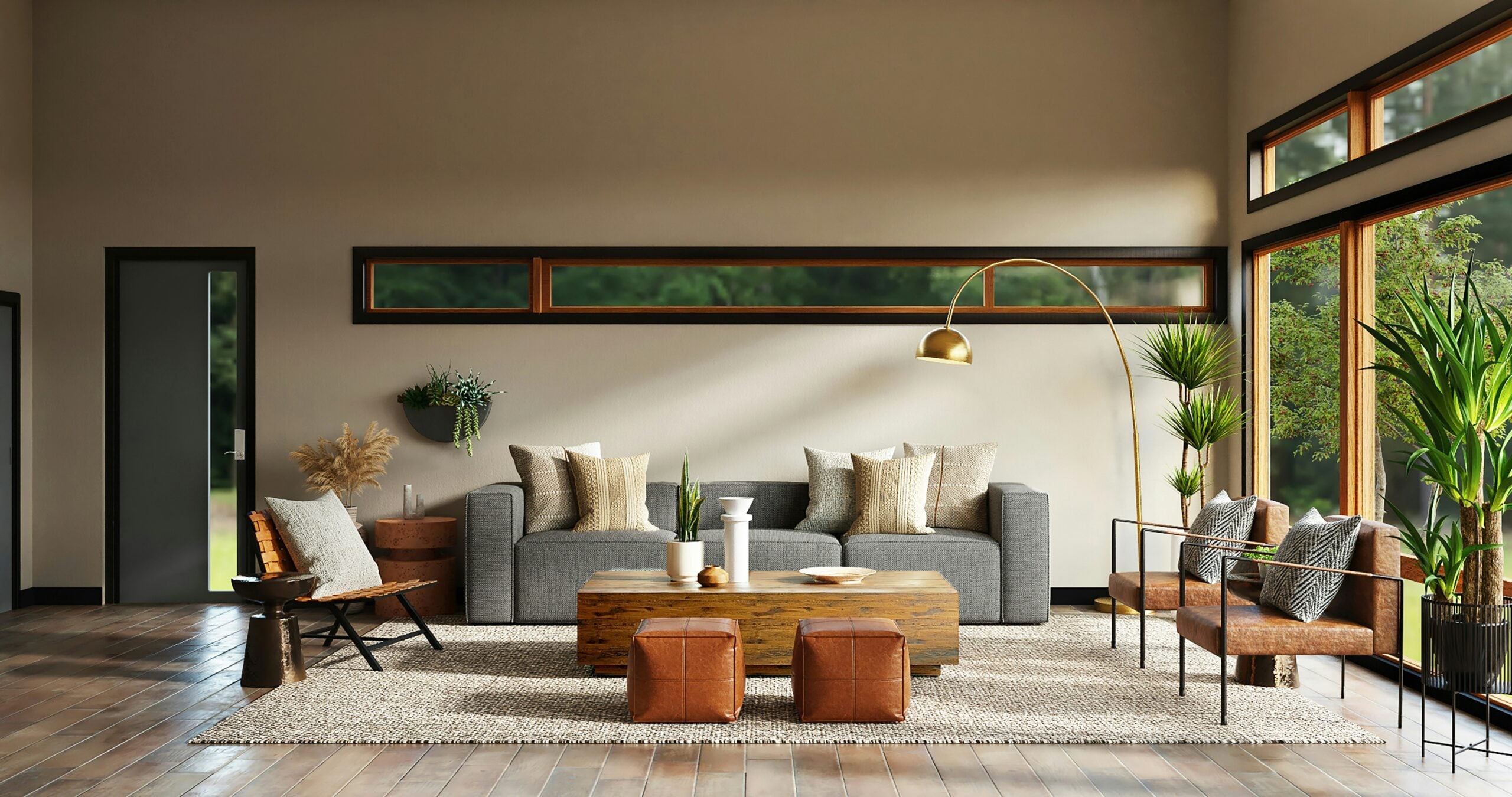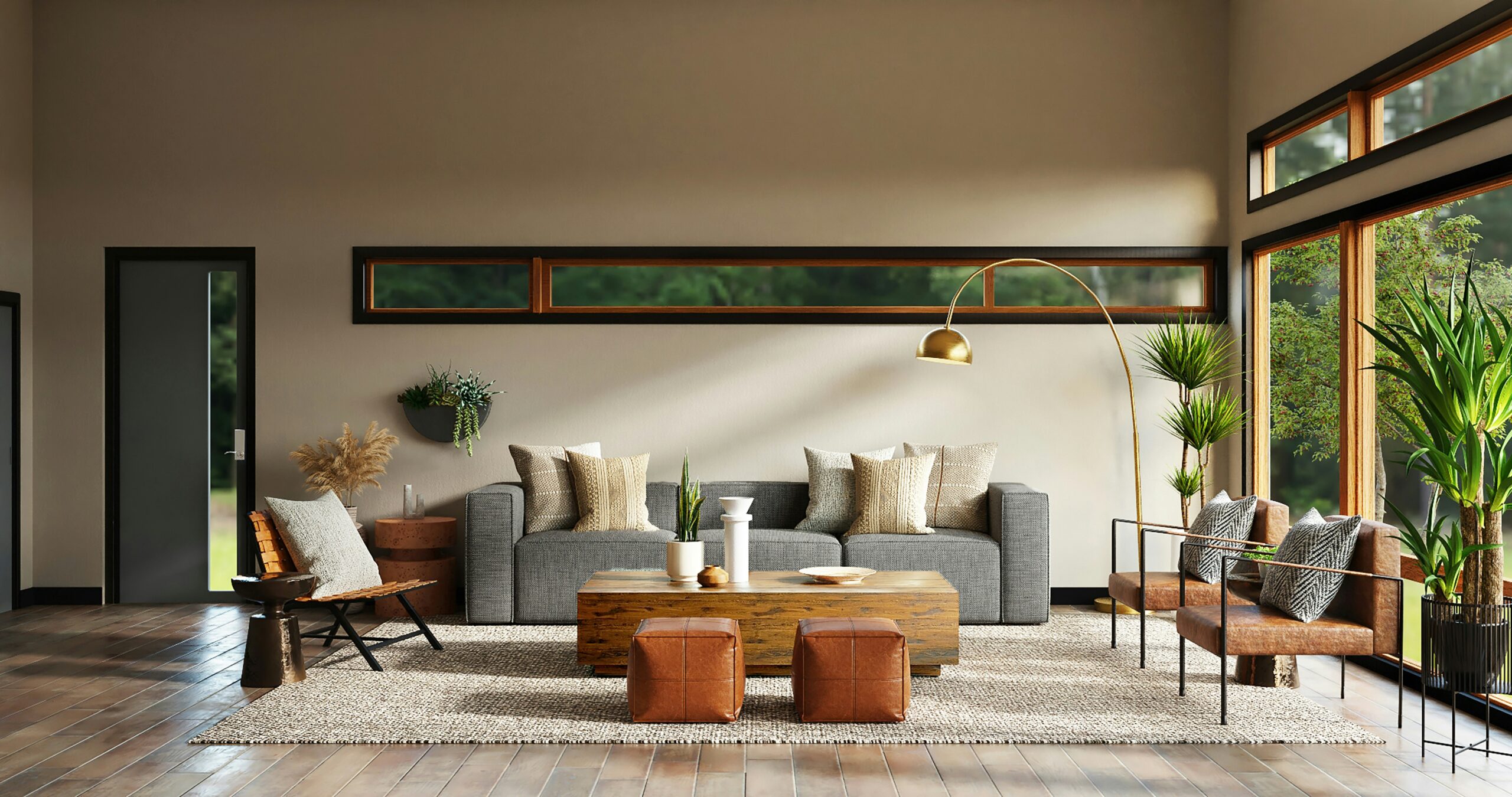
A well-designed home is more than just visually appealing—it significantly impacts a person’s mood, concentration, and overall well-being. The environment we live in can either enhance or hinder our ability to function efficiently, impacting everything from productivity to mental health.
Thoughtful home design integrates elements that support daily tasks, minimize stress, and promote a balanced lifestyle.
In today’s fast-paced world, where work-from-home setups and hybrid work models are increasingly common, the need for a functional and comfortable living space has never been more significant.
Whether in a bustling city or a quieter setting like Nashville, Tennessee, optimizing natural lighting, improving organization, or selecting calming color schemes can create a seamless flow that supports both work and relaxation.
Enhancing Comfort and Functionality in the Bathroom
A home’s bathroom is often overlooked in discussions about productivity and well-being, but it plays a crucial role in shaping daily routines. A clean, well-organized, and modern bathroom can contribute to a stress-free start and end to each day. Features like adequate lighting, efficient storage, and thoughtful layouts improve efficiency, ensuring that morning and nighttime routines feel seamless rather than chaotic.
For homeowners considering an upgrade, modern bathroom renovations offer both aesthetic and functional benefits. Improved ventilation, sleek fixtures, and smart storage solutions enhance usability, reducing clutter and promoting relaxation. A well-designed bathroom also fosters a sense of cleanliness and order, which can positively influence mental clarity.
If you’re thinking about remodeling your bathroom, reach out to the Zintex Remodeling Group of Nashville to discuss your vision and discover how an upgraded space can improve your daily routine.
The Role of Natural Light in Boosting Productivity
Lighting plays a crucial role in shaping mood, energy levels, and focus. Homes that maximize natural light can significantly improve mental well-being and cognitive performance. Exposure to natural daylight has been linked to increased serotonin levels, which helps regulate mood and reduce stress. Additionally, bright, well-lit spaces can boost alertness, making it easier to stay productive throughout the day.
Strategic placement of windows, skylights, and glass doors allows sunlight to penetrate deep into the home, reducing the need for artificial lighting during the day. In workspaces, positioning a desk near a window can create an environment that enhances concentration and creativity. Soft, warm lighting options for evening hours also contribute to a balanced atmosphere, preventing strain on the eyes while maintaining a comfortable ambiance.
Optimizing the Home Office for Efficiency
With remote work becoming more prevalent, a well-designed home office has become essential. A dedicated workspace that prioritizes comfort and organization can significantly impact productivity levels. The ideal setup includes an ergonomic chair, a spacious desk, and sufficient storage to keep the area clutter-free.
Minimizing distractions is another critical factor in optimizing a home office. Soundproofing, whether through rugs, curtains, or acoustic panels, can help create a quieter environment that supports deep focus. Alongside these materials, stones can also contribute to a calm, professional atmosphere, adding both texture and elegance to the space. Compared to other stones, such as marble or granite, installing cultured stone is often more cost-effective and easier to work with while still providing a sophisticated and natural look that enhances the workspace. In addition to their versatility in design, these types of options can easily complement a variety of interior styles, from contemporary to rustic, adding to the overall aesthetic. Additionally, incorporating greenery, such as potted plants or a small indoor garden, can enhance air quality and contribute to a calming workspace.
The Psychological Benefits of an Organized Living Space
A cluttered home often leads to a cluttered mind. Disorganization can increase stress levels and make it difficult to focus on important tasks. On the other hand, a clean and well-arranged home creates a sense of control and harmony, contributing to better mental clarity and emotional stability.
Implementing storage solutions such as shelves, cabinets, and multifunctional furniture helps maintain an orderly environment. Regular decluttering sessions ensure that unnecessary items do not accumulate, keeping the space fresh and functional. When every item has a designated place, daily tasks become more efficient, allowing for a smoother and more structured routine.
The Impact of Color Psychology in Home Design
Colors have a profound influence on mood and cognitive function. The right color scheme can create an atmosphere conducive to productivity, relaxation, or creativity, depending on the intended purpose of each space.
Cool tones like blues and greens promote tranquility and focus, making them ideal for bedrooms and work areas. Warmer shades such as yellows and oranges can enhance energy and creativity, which work well in social spaces like kitchens and living rooms. Neutral colors, including whites and beiges, provide a clean and timeless aesthetic that fosters a sense of openness and clarity.
Creating a Restful Bedroom for Quality Sleep
Sleep is a critical component of overall well-being, and the design of a bedroom can directly impact sleep quality. A well-designed bedroom prioritizes comfort, relaxation, and minimal distractions. Factors such as mattress quality, pillow selection, and blackout curtains contribute to a restful environment.
Reducing electronic distractions in the bedroom also promotes healthier sleep patterns. Blue light from screens can interfere with melatonin production, making it harder to fall asleep.
Incorporating Nature for Mental and Physical Health
Bringing elements of nature into the home enhances both physical and mental well-being. Indoor plants improve air quality, reduce stress, and create a visually appealing environment. Studies have shown that exposure to greenery can lower blood pressure, boost concentration, and enhance overall happiness.
Outdoor spaces, such as patios, balconies, or gardens, offer additional opportunities to connect with nature. Even small additions like a window box with fresh herbs or a miniature indoor fountain can introduce a sense of calm and balance.
Designing a Kitchen That Encourages Healthy Living
The kitchen is often the heart of a home, influencing dietary habits and overall health. A well-designed kitchen encourages home-cooked meals, better organization, and a more enjoyable cooking experience. Functional layouts, ample counter space, and easy access to appliances make meal preparation more efficient.
Storage solutions such as labeled containers, pull-out shelves, and dedicated pantry space contribute to a well-ordered kitchen. A clutter-free cooking area not only improves efficiency but also promotes mindful eating habits.
The Connection Between Home Design and Emotional Well-Being
A thoughtfully designed home supports emotional well-being by fostering a sense of comfort, security, and personal expression. Every detail, from furniture arrangement to decorative elements, plays a role in shaping the atmosphere of a living space.
Creating cozy nooks for reading, relaxation, or meditation allows for moments of solitude and self-care. Integrating personal touches, such as family photos, meaningful artwork, or cherished heirlooms, enhances the emotional connection to the home.
All in all,a well-designed home is not just about aesthetics—it has a direct impact on productivity, mental health, and overall well-being. From an organized bathroom to a restful bedroom and an efficient home office, every space within the home plays a role in shaping daily life.


